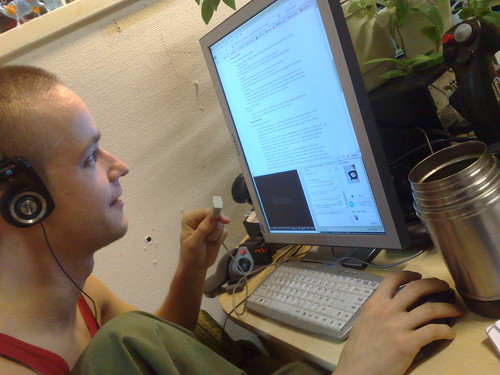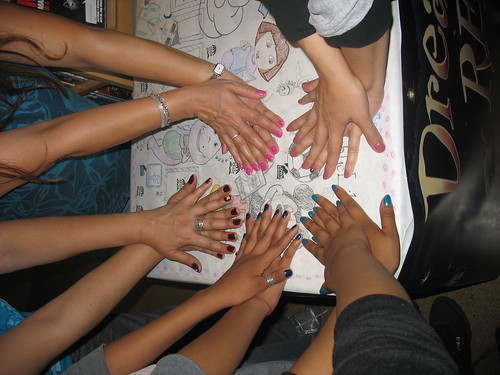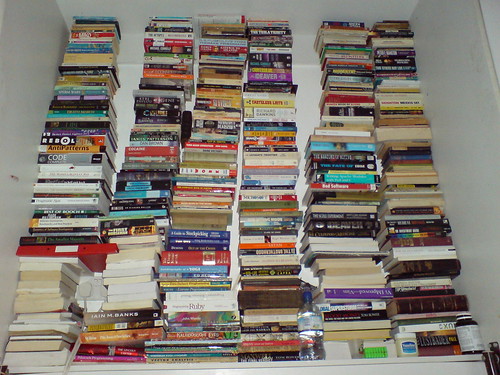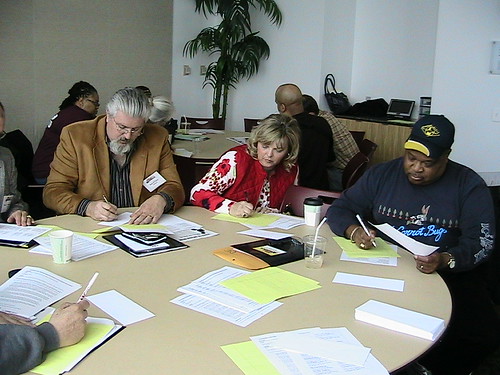I've been thinking about book signings again today. (Learn how to do a Drive-By Book Signing at the end of this article).
My next book signing should be in the backyard of my new home, but I'm still looking for a home, so we'll see.
Previously, when I've done a backyard signing, I have made it a point to do the following things:
1.
Let my friends and family know about the signing at least two weeks in advance. I email, connect with my social media friends, and send the message out daily on twitter, Facebook and Linkedin (my three favorite social media sites). When I am out and about, I hand out postcards with my book cover on one side and my contact information and book synopsis on the other. I leave postcards, with my event listed, anywhere I go that will allow me to leave a few cards.
2.
I make up a nice sign for the front yard. I get this professionally done. No hand-written stuff that looks lopsided or unprofessional! This time around I'm going to add helium balloons to attract more attention. These can be purchased and filled easily at the dollar store, but get them the morning of the event, not the night before; balloons may begin to lose their buoyancy if they have to sit over a night.
 |
| Photo by: Dinner Series, courtesy of Flickr |
3. I make sure that here is
enough seating for everyone and that the tables look nice.
Table cloths are always needed as are
centerpieces.
4. I make sure I have
food, and plenty of it. My last signing for my book Scrambled, was a breakfast.
We had scrambled eggs (which my husband cooked up) sausage and pancakes. Always get a chef so that you can talk to those who come to your back yard signing. For my next signing there will be plenty of desserts to go along with my book, The Feast.
5. I have a
table set up with my books (not just my new book), and I make sure I have plenty of copies. Decide the count on how many people you invite. You can usually expect a 10 percent showing on most signings--but count on 20 percent. That means if you invite 200 people, expect to sell at least 20-50 books. (If you feel as if this isn't enough books, order a bit more. If you sell them, great, if not, you'll be that much ahead for your next signing). While most readers will purchase your new book, expect that they will also want the other books you've published if they haven't already got them. Plus, many readers are looking for gifts for their friends and relatives.
6.
Set the price of your books cheaper than your readers would buy the book elsewhere. I make my price an even number like: $10, rather than charging say, $10.98. I don't want to worry about change if I can help it. Your readers need to know before they arrive that they're getting a discount on their book. And, this is a given, but make sure that you autograph each copy you sell.
7.
If I'm giving away freebies, or offering a contest, I let everyone know before the event. While I'm all in favor of small items that come free just for attending, you may want to reconsider a contest that offers a copy of your book. Some folks might hope they win, and instead of buying a book, will wait to see if they're a winner. I have never offered a contest at my back yard signing, and have sold at least one copy to everyone who has attended.
8.
Play some music in the background, or, if your book is geared toward children,
plan some games that relate to your book. I have a friend who writes middle reader/YA books and she always has games as part of her book's release. The kids love it!
The most important thing is to have fun! Relax and enjoy your friends and family that have come to support you!
What do you do at your book signings? I'd love to hear!
Is your book in bookstores? Here's how to do a
Drive-By Book Signing!




























